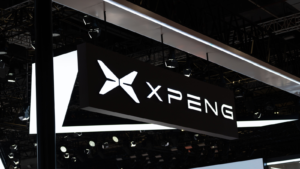Chinese stocks to avoid are becoming clearer as doubts about the Chinese economy loom large.
Indexes from Hong Kong to New York Continue to weigh Beijing’s efforts to prop up its economy while traders there are seeing which Chinese stocks to avoid. Tesla’s (NASDAQ:TSLA) issues continue to complicate matters in China, where the leading U.S. EV manufacturer has a heavy presence.
Concerns about the Chinese economy are rising as leaders in the nation consider further stimulus measures. It’s a sharp departure from a few weeks ago when officials were much more confident.
More recently, though, officials are prodding institutional investors to buy up assets in order to stem a broader sell-off. The events should galvanize U.S. investors to consider decreasing their exposure to these Chinese stocks to avoid.
Alibaba (BABA)

Alibaba (NASDAQ:BABA) is one of the aforementioned stocks that U.S. investors should be cautious of.
Government leaders in China are prodding institutional investors to scoop up stocks in order to prevent a broader sell off. Coincidentally, Jack Ma recently bought up shares of Alibaba.
A Baron’s report covering the purchase noted that it could be a classic value trap. Alibaba’s shares have long traded well below levels at which analysts expect them to trade. The apparent value though has not materialized yet, for the most part, so it could remain a classic value trap.
However, that’s not the point here. Instead, Jack Ma’s recent purchase could be one example of State interference in the stock market. Remember, Ma was openly critical of the Chinese government and subsequently faced immediate repercussions.
Whether or not his recent purchase was forced remains pure conjecture. Yet, it is entirely possible given that the government was seeking such cooperation to stem wider losses.
NIO (NIO)

NIO (NYSE:NIO) and its stock weren’t doing particularly well to begin with. It’s a disappointing turn of events for a Chinese EV maker that was once so promising.
The company continues to grow at a slower rate than the overall market, which appears to be a self-inflicted wound. NIO’s sales increased by 30% throughout 2023, but that was lower than a hot Chinese EV market that grew by 38%.
The manufacturer produces vehicles aimed at an upscale market and may simply be overconfident. it has refused to lower prices and, as a result, missed delivery targets in 2023 by a substantial amount.
Currently, NIO commands just over 2% of market share. That low number is troubling. However, NIO’s problems are currently being compounded by Tesla’s issues. Weak guidance is reverberating through the Chinese EV market where Tesla is a leading manufacturer.
The fact that Neo commands such a small percentage of the market is particularly telling and suggestive of a further slide.
XPeng (XPEV)

XPeng (NYSE:XPEV) is another Chinese EV manufacturer whose stock is suffering as Tesla’s issues mount. It’s also a stock that suffers from particularly weak sentiment at the moment. Momentum traders will be especially cautious of XPeng for that exact reason.
Despite being a big name in China XPeng still delivers far fewer vehicles than Tesla. While Tesla delivered 484,000 vehicles in Q4, XPeng delivered Just over 60,000 EVs. XPeng’s outlook is directly tied to Tesla’s.
The company continues to deliver a mix of extraordinary growth combined with massive losses. The 60,000 vehicles that the company delivered in the fourth quarter represented the growth rate of 171% on a year-over-year basis. Yet XPeng continues to produce losses in the hundreds of millions of dollars.
Those large losses look much worse in light of the news from Tesla. And those massive growth figures suddenly take on diminished importance.
Taoping (TAOP)

Taoping (NASDAQ:TAOP) is a cloud-based data analytics firm operating out of Shenzhen. It’s also a highly unknown firm and stock overall. so, despite having some positives in its favor, the negatives take on particularly strong weight.
Taoping’s most recent earnings report showed that revenues nearly doubled, rising 93% to $14.1 million. During the same period, net losses improved by 10% narrowing to $1.8 million. Those results are arguably strong and strong enough to consider investment in TAOP shares.
However, there are confounding factors to consider outside of the recent slide in Chinese stocks. For one, those earnings results cover the first half of 2023. The company isn’t providing up-to-date financials, which is itself a problem.
Taoping also implemented a 1-for-10 reverse stock split in July 2023. As expected, it resulted in a sharp and immediate decline in share prices. It’s also part of a broader pattern in which the company’s shares are heading consistently lower.
Pop Culture Group (CPOP)

It’s very difficult to find any information about Pop Culture Group (NASDAQ:CPOP). That makes it incredibly difficult to judge its stock and the value thereof.
Searching for its press releases will lead potential investors to broken web pages. Likewise, a search for SEC filings will lead to similarly broken links.
The company hosts hip-hop related events. Hip-hop itself is growing rapidly in China. However, Pop Culture Group is a small scattered company that likely over promises and under delivers.
It’s a really strange stock overall because the last financials the company released are from the first half of 2022. The company reported more than $20 million in revenues and net income of $450k. Revenues grew by 46% during that period.
Yet that is the most recent financial information provided on its website. Pop Culture Group Is potentially a ghost firm but if it isn’t, there’s no clear explanation for shares jumping 5% on the day. What is clear is that it is too dangerous.
Farmmi (FAMI)
Like Pop Culture Group and its stock, Farmmi (NASDAQ:FAMI) It’s simply too dangerous and lacking in transparency.
The most recent financial results for the company cover the 6-month period ended March 31, 2023. The results themselves aren’t particularly bad at all.
In fact, investors could certainly find things to like within the financial report. Revenues grew by over 43%, exceeding $60 million. Further, Farmmi Reported net income of $600k after a loss of $600k a year before.
The company sells edible mushroom products and production platforms that make sense as well. It’s a growing sector overall, but the problem remains that investors really don’t have enough information here.
Further, Farmmi enacted a one-for-eight reverse stock split after its last released earnings. The decision actually had the desired effect and serves to push share prices above $1. Overall, though, the fact remains that there’s simply not enough information here.
Ambow Education (AMBO)

Ambow Education (NYSEAMERICAN:AMBO) Is a company that has developed an AI-enabled education platform. That platform serves both education and workforce training purposes. AMBO Stock continues to slide rapidly toward zero.
In late November, the company released earnings covering the second quarter. That earnings release showed that revenues declined by 46% primarily due to the closure of Bay State College. The permanent closure resulted in a sales decline from $5 million to $2.7 million over the period.
The company managed to narrow its net loss from $2 million to $800k during that time. Overall though, it’s clear that Ambow Education was too heavily reliant upon a single client.
The lack of diversified revenue streams is a severe detractor to the stock’s value. It’s a stock that currently trades for 14 cents, a very low price. AMBO shares have traded below $1 since 2021. It appears to be marching toward complete failure, making it one of the Chinese stocks to avoid before it implodes.
On the date of publication, Alex Sirois did not have (either directly or indirectly) any positions in the securities mentioned in this article. The opinions expressed in this article are those of the writer, subject to the InvestorPlace.com Publishing Guidelines.
Consumer Staples, Agriculture, Artificial Intelligence, E-Commerce, Consumer Discretionary, Automotive, Electric Vehicles, Financial, Communications, Media, Retail, Technology

